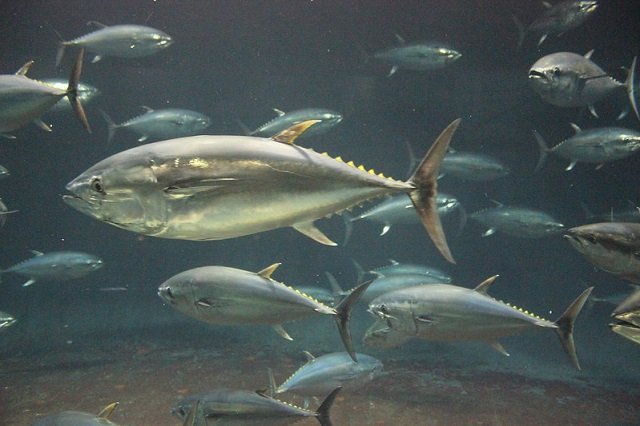Norway.- Stress slows wound healing in fish, according to doctoral work done by Lene Sveen at Nofima. Sveen defends her thesis 30 November 2018 at University of Bergen.
She has researched the impact of stress on fish’s ability to heal and to produce mucus. These are important capabilities in both open pens and closed containment aquaculture systems. She has induced stress by catching the fish, and by varying fish density and size of the fish in the pens.
Sveen used many different techniques to analyze wound healing in stressed and unstressed fish, including microarray. The main gene class that was affected by stress was the immune genes. Their job is to protect open wounds and remove damaged tissue. Many genes involved in wound repair also had a delayed response under stress, causing wounds to close more slowly in stressed fish.
“When a fish is stressed, its immune response changes. Not only do wounds heal more slowly – the fish will also be less able to resist disease,” says Sveen.
“We also found out that when a fish becomes acutely stressed, it loses its protective mucus coating. And it takes more than a day for it to return,” says Sveen.
This is bad news for the fish, as the mucous coating protects the fish against diseases.
“My message is that we must focus on preventative fish health when designing closed containment systems. I think it will be very interesting to see how the industry addresses this challenge.”
“Closed containment aquaculture systems are evolving rapidly, and I can’t wait to see what the fish farming industry’s equivalent to the iPad will be,” says Sveen.
Stay Always Informed
Join our communities to instantly receive the most important news, reports, and analysis from the aquaculture industry.
Title of thesis is «Aquaculture relevant stressors and their impacts on skin and wound healing in post-smolt Atlantic salmon (salmo salar L.)». Supervisors has been Sigurd Stefansson, Sigurd Handeland, Lars Ebbesson, Harald Takle, Elisabeth Ytteborg and Tom Ole Nilsen.
ABOUT CTRLAQUA
CtrlAQUA is a centre for research-based innovation (SFI) doing research on closed-containment aquaculture systems. The main goal is to develop technological and biological innovations that will make closed systems a reliable and economically viable technology.
Host institute is Nofima, and the centre has 7 R&D partners and 14 industry partners.
Contact person
Lene Sveen
Scientist
Phone: +47 64 97 04 12
lene.sveen@nofima.no
Source: Nofima
Editor at the digital magazine AquaHoy. He holds a degree in Aquaculture Biology from the National University of Santa (UNS) and a Master’s degree in Science and Innovation Management from the Polytechnic University of Valencia, with postgraduate diplomas in Business Innovation and Innovation Management. He possesses extensive experience in the aquaculture and fisheries sector, having led the Fisheries Innovation Unit of the National Program for Innovation in Fisheries and Aquaculture (PNIPA). He has served as a senior consultant in technology watch, an innovation project formulator and advisor, and a lecturer at UNS. He is a member of the Peruvian College of Biologists and was recognized by the World Aquaculture Society (WAS) in 2016 for his contribution to aquaculture.







